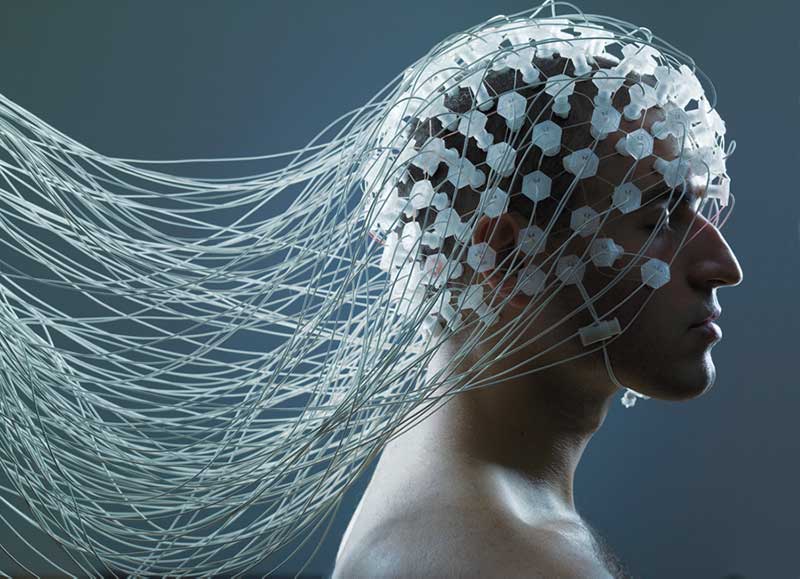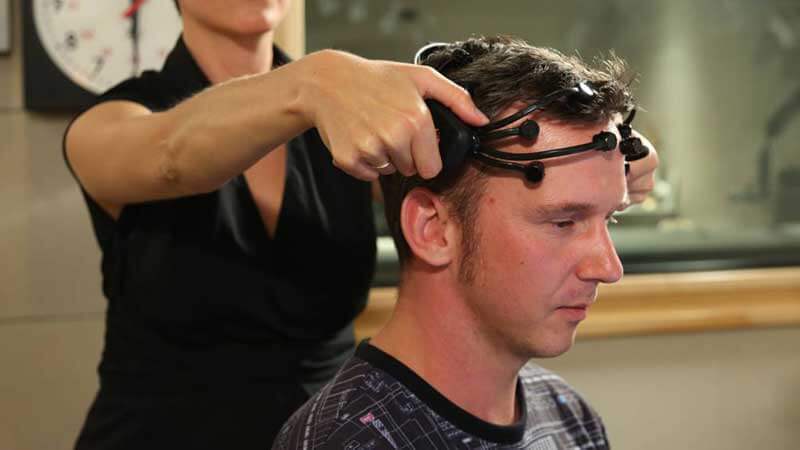- New tech can help people and businesses
- Criminals can take advantage of neurotech, too
- Hacking BCIs
- Mind reading and brain hacking – no longer sci-fi
- Will ethics and the law catch up?
New tech can help people and businesses
Neurotechnology has advanced further than you probably realise. For instance, Phillips, the Dutch electronics giant, has a working ‘proof of concept’ for mind-controlled home electronics like televisions. This cutting-edge tech allows people who’ve lost motor control due to diseases like ALS to regain a sense of independence in their lives. These devices depend on a sophisticated brain-computer interface (BCI) that can read the tiny electrical impulses of a user’s mind and translate them into commands the electronics can understand. And this amazing advance is nothing short of miraculous for the people who need it.
Another example of neurotech’s state-of-the-art is neuromarketing. Neuroscientists and researchers use functional magnetic resonance imaging (fMRI) to measure brain activity, watching how we think as we’re exposed to advertising. The results give marketers direct access to our responses to ads and images, helping companies redesign their packaging. These scans have even been considered as the new standard for lie-detection, although experts question whether they’ve reached the level of accuracy needed to satisfy legal and ethical concerns. What’s clear, however, is that it’s only a matter of time before we can depend on fMRIs to detect lies and help us convict criminals.

Criminals can take advantage of neurotech, too
But as this field moves forward, it’s not just the good guys who are benefiting. Criminals see new possibilities here, too. And very soon, perhaps even frighteningly soon, we need to be prepared for a brave new world of brain hacking and thought theft. As Marcello Ienca, an expert on biomedical ethics told the Daily Mail, “The mind is considered to be the last refuge of personal freedom and self-determination, but advances in neural engineering, brain imaging and neurotechnology put the freedom of the mind at risk.”
Hacking BCIs
The easiest and most likely threat from thought thieves will be hacking the software that drives BCIs. The data that these devices contain – passwords for electronic banking, PIN numbers, etc. – are a treasure-trove for would-be criminals. They have every incentive to break into these devices and steal valuable information. This is no more farfetched than a hacker defeating the security of your tablet or smartphone, and it should have you worried. Marcello Ienca and his co-author, Roberto Andorno, warn that when “neurotechnology becomes more pervasive, the data decoded by neurodevices are exposed to the same risks and levels of insecurity of other sectors of the digital ecosystem”.
Mind reading and brain hacking – no longer sci-fi
A far scarier technique involves actual mind reading. That may sound like science fiction, but it’s real. In fact, researchers have already demonstrated that it’s pretty easy to do. Mark Goodman, the author of a book on future crime, writes that – in 2012 – scientists from Oxford University, UC Berkeley, and the University of Geneva equipped test subjects with inexpensive, off-the-shelf wearables, such as the Emotiv headset. They then flashed images of ATMs with background questions like “What is your PIN?” The results were shocking: 30 per cent of the time, they were able to uncover the correct numbers! As BCI tech improves, that accuracy will only increase.
That’s truly frightening, and the future of brain hacking and mind reading is rushing closer every day. Researchers from Carnegie Mellon (CMU) have developed a system that relies on machine learning and brain imaging to read and understand complex thoughts. Marcel Just, a research psychologist and the lead scientist on the project at CMU, explains that “One of the big advances of the human brain was the ability to combine individual concepts into complex thoughts, to think not just of ‘bananas’ but ‘I like to eat bananas in the evening with my friends’. We have finally developed a way to see thoughts of that complexity in the fMRI signal. The discovery of this correspondence between thoughts and brain activation patterns tells us what the thoughts are built of.”

Will ethics and the law catch up?
Just and his colleagues want to understand how the brain works and decipher the way complex thoughts are built from simple beginnings. But the technology they’ve developed gives us a terrifying glimpse of a future in which fMRIs tear down our final freedom, exposing our deepest thoughts to anyone who wants them. This is way beyond stealing a PIN code – this is an invasion of a fundamental right to privacy the likes of which we’ve never seen before. And that has ethicists like Ienca and Andorno worried.
As they write, “While these advances have a huge potential for clinical and research applications, they pose a fundamental ethical legal and social challenge: determining whether, or under what conditions, it is legitimate to gain access to or to interfere with another person’s neural activity.” It’s important to emphasise that, at least for now, there are no laws about mind reading or thought stealing. This simply isn’t something our legal systems have grappled with in the past – it’s brand new territory for crime and punishment.
And it should have you worried as mind reading tech runs ahead of ethics and law.
Is this the future of crime?
Share via:


